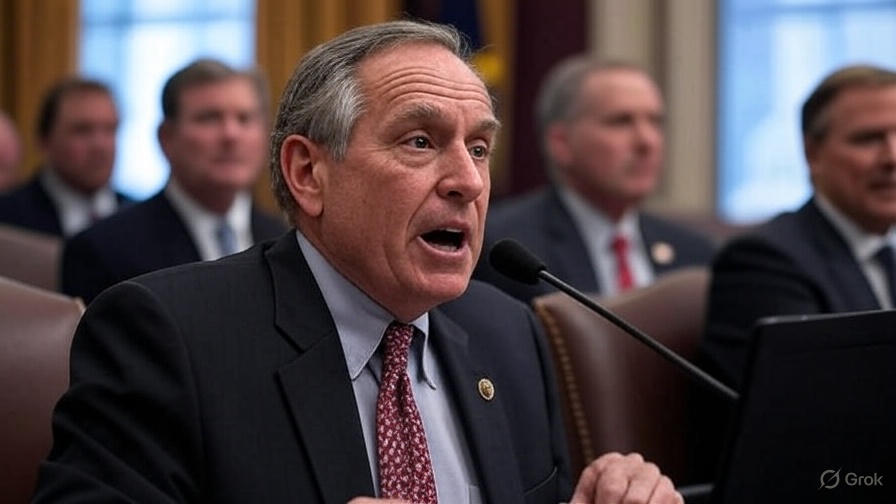Elon Musk’s political threat to form a new political party and challenge Republicans supporting President Donald Trump’s “Big Beautiful Bill” has reignited tensions between the world’s richest man and the U.S. president. On July 1, 2025, Musk escalated his criticism of the massive tax and spending bill, which includes a record $5 trillion debt ceiling increase, by vowing to fund primary challenges against GOP lawmakers who back it. This bold move has sparked widespread debate about fiscal responsibility and the future of American politics.

Musk’s Feud with Trump Intensifies
Musk, who previously supported Trump’s 2024 campaign with over $250 million, has publicly clashed with the president over the bill, calling it “utterly insane and destructive” for prioritizing “industries of the past” while harming future-focused sectors like electric vehicles. In a series of posts on X, Musk threatened to create the “America Party” to give voters an alternative to the “Democrat-Republican uniparty,” accusing Congress of betraying promises to reduce government spending.
Trump retaliated, suggesting Musk’s companies, like Tesla and SpaceX, rely heavily on government subsidies and contracts, which could be cut. He even took a personal jab, stating Musk might need to “head back to South Africa” without them. This public feud, which began escalating in June 2025, marks a significant shift from their once-close alliance, with Musk stepping down from his role in Trump’s Department of Government Efficiency (DOGE).
The Threat to Unseat Lawmakers
Musk’s most concrete political threat came on July 1, 2025, when he pledged to oust Republicans who support the bill, stating, “They will lose their primary next year if it is the last thing I do on this Earth.” He specifically targeted lawmakers who campaigned on fiscal conservatism but voted for what he calls a “debt slavery” bill, even threatening to publicize their names on posters labeled “liar.” With his immense wealth and influence, Musk could leverage his America PAC, which spent $240 million in 2024, to fund challengers nationwide.
This threat has put House and Senate Republicans in a difficult position. Figures like Speaker Mike Johnson have tried to downplay the conflict, insisting policy differences are not personal, while others, like Senator Rand Paul, align with Musk’s criticism of the bill’s spending. The internal GOP divide highlights Musk’s growing influence as a political powerbroker.
Implications for U.S. Politics
Musk’s threat to form a new party and challenge the GOP establishment raises questions about the viability of a third party in the U.S. two-party system. His rhetoric about the “Porky Pig Party” and a need for a party that “cares about the people” resonates with voters frustrated by political gridlock. However, analysts question how serious Musk is, given his earlier backtracking on similar threats, such as decommissioning SpaceX’s Dragon spacecraft.
The feud also underscores the intertwining of Musk’s business interests with government policy. Trump’s threats to cut subsidies for Tesla and SpaceX could impact Musk’s companies, which have benefited from billions in federal contracts. Meanwhile, Musk’s push for fiscal restraint aligns with his past role in DOGE, where he advocated for cutting programs he viewed as wasteful.
What’s Next?
As the Senate prepares to vote on the bill, Musk’s political threat looms large. His ability to sway Republican voters and fund campaigns could reshape the 2026 midterms. Whether he follows through on forming the America Party or focuses on primary challenges, Musk’s actions signal a willingness to disrupt the political status quo. For now, the clash between Musk and Trump continues to dominate headlines, with both sides digging in.







































